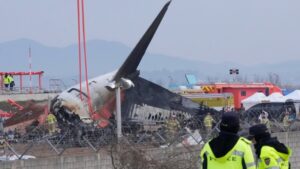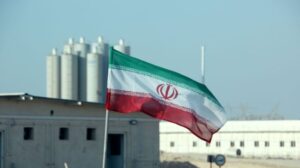The Jeju Air aircraft that crashed at the airport in the city of Muan, South Korea, appears to have crashed, carrying 179 passengers and crew members to their deaths.
According to industry sources cited by Yonhap, the ill-fated aircraft had – due to the needs created by the holiday season – made 13 trips in the 48 hours before the crash. During those two months, the aircraft travelled between three airports in South Korea and five airports in five other countries: China, Japan, Thailand, Malaysia and Taiwan.
Jeju Air’s average monthly operating hours were also found to be significantly higher among other domestic airlines.
According to Jeju Air’s quarterly report, the average monthly transit time per passenger aircraft in the third quarter of this year was 418 hours, the longest among the six domestic airlines.
The average monthly transit time of Jin Air, another South Korean carrier, in the third quarter of this year was 371 hours, and the average monthly transit time of T’way Air was 386 hours.
Jeju Air, however, pointed out that the fatal crash on Sunday morning was not the result of negligent maintenance.
Ask me anything
Explore related questions





